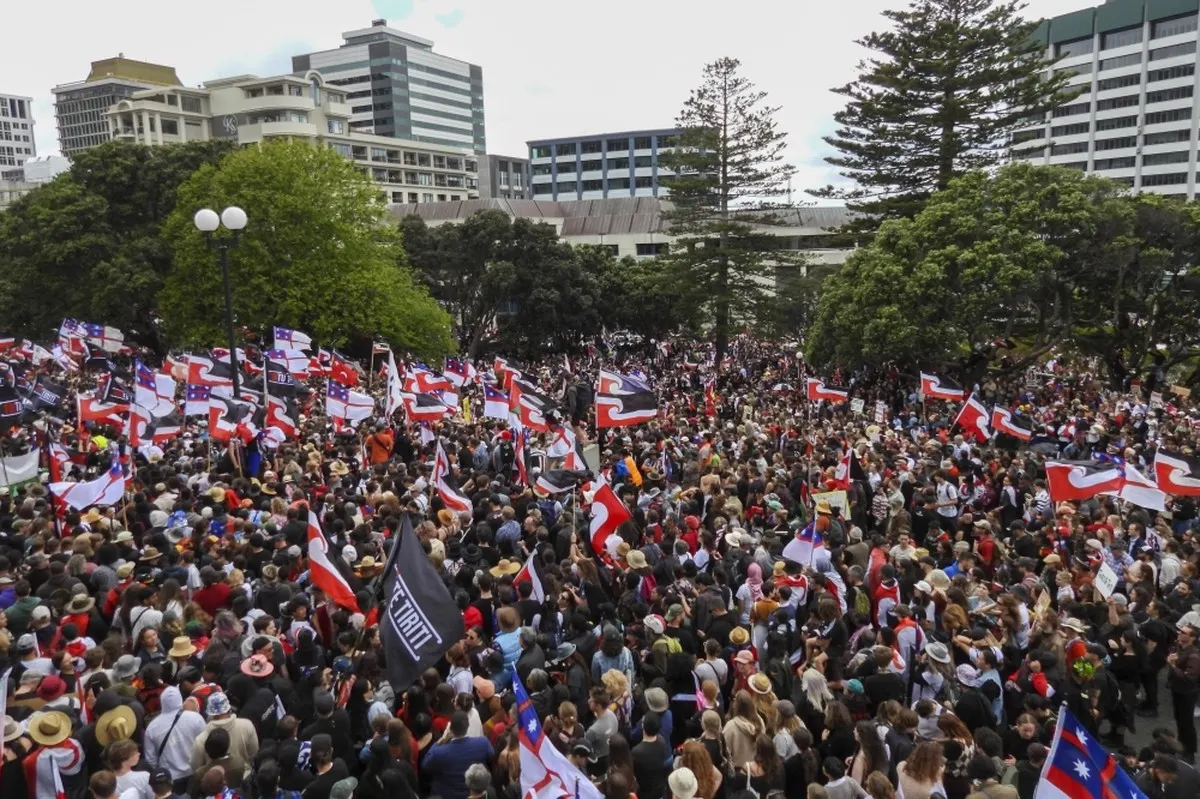19/11/2024
19/11/2024

WELLINGTON, New Zealand, Nov 19, (AP): As tens of thousands of marchers crowded the streets in New Zealand’s capital Wellington on Tuesday, the throng of people, flags aloft, had the air of a festival or a parade rather than a protest. They arrived to oppose a law that would reshape the county’s founding treaty between Indigenous Māori and the British Crown. But for many, it was about something more: a celebration of a resurging Indigenous language and identity that colonization had once almost destroyed. "Just fighting for the rights that our tūpuna, our ancestors, fought for,” Shanell Bob said as she waited for the march to begin.
"We’re fighting for our tamariki, for our mokopuna, so they can have what we haven’t been able to have,” she added, using the Māori words for children and grandchildren. What was likely the country’s largest-ever protest in support of Māori rights - a subject that has preoccupied modern New Zealand for much of its young history - followed a long tradition of peaceful marches the length of the country that have marked turning points in the nation's story. "We’re going for a walk!” One organizer proclaimed from the stage as crowds gathered at the opposite end of the city from the nation’s Parliament.
Some had traveled the length of the country over the past nine days. For many, the turnout reflected growing solidarity on Indigenous rights from non-Māori. At bus stops during the usual morning commute, people of all ages and races waited with Māori sovereignty flags. Some local schools said they would not register students as absent. The city’s mayor joined the protest. The bill that marchers were opposing is unpopular and unlikely to become law. But opposition to it has exploded, which marchers said indicated rising knowledge of the Treaty of Waitangi’s promises to Māori among New Zealanders - and a small but vocal backlash from those who are angered by the attempts of courts and lawmakers to keep them.
Māori marching for their rights as outlined in the treaty is not new. But the crowds were larger than at treaty marches before and mood was changed, Indigenous people said. "It’s different to when I was a child,” Bob said. "We’re stronger now, our tamariki are stronger now, they know who they are, they’re proud of who they are.” As the marchers moved through the streets of Wellington with ringing Māori haka - rhythmic chants - and waiata, or songs, thousands more holding signs lined the pavement in support.


